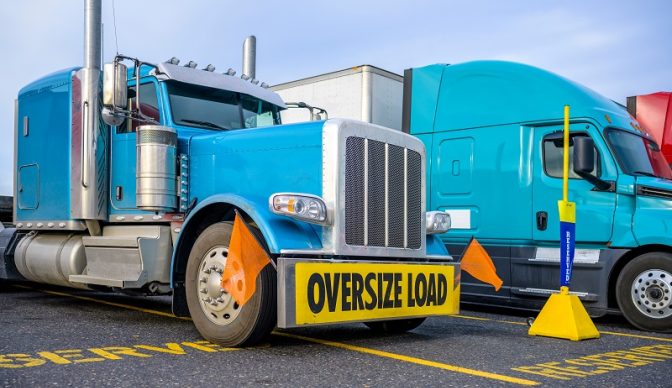7 Ways for Carriers to Choose the Best 3PL Partner
The last few years have been a tumultuous time for supply chain professionals. Lockdowns, bottlenecked ports, and drastic capacity shifts have forced logistics companies to think outside the box, increasing demand for a third-party logistics (3PL). While many aspects of daily life have resumed a “new normal,” supply chain management is still dealing with the aftermath and turning to 3PL partners and value-added 3PL services to help.
In August 2022, Supply Chain Dive reported, "Air cargo volumes fell 9% YoY in July, continuing a downward trend as global uncertainties and a shift back to ocean transport weigh on demand.” This shift back to maritime transport has and is shifting the logistics process starting with the locations of warehouse spaces and fulfillment centers. Why keep one close to their airport when freight is headed to the port now? As import and export order fulfillment routes change, carriers need someone in their corner to help with the transition.
3PL companies are designed to fulfill that gap. A 3PL partner specializes in industry expertise and relationships across the supply chain to offer a streamlined connecting service to their shippers and carriers. Sadly, some carriers have had horrible experiences working with a 3PL. How do you choose the best? Let’s consider seven characteristics that make the best 3PL partners.
1. Customer Service Options and Customization
When evaluating 3PL services, carriers must consider the available customer care options. Customer service is essential for today’s consumers. In July 2022, McKinsey and Company discussed the problems with modern customer care, saying, “call volumes are up, employees are leaving and harder to replace, and digital solutions aren’t yet delivering on their full promise. Add rising customer expectations and decades-high inflation to the mix, and it’s easy to understand why customer care leaders are feeling the pressure.”
Premier 3PL logistics professionals know this insight and offer multiple customer service options. These options typically include phone support, chatbots, live virtual support, or multiple communication avenues. Since owner-operators only provide customer care when they’re not behind the wheel, they gain support for themselves with 3PL company customer service options.
2. Reliability and Financial Security of 3PL Services
In today’s market, resiliency is invaluable. Shippers and carriers alike need logistic services that can do more than just cover shipping costs. Carriers participating in reverse logistics often have intermodal connections to care for specialty freight. So who do carriers trust with so much on the line?
Carriers can determine the reliability and financial security by looking into what 3PLs offer. How high is their surety bond? Are they innovatively minded, utilizing a high-quality TMS or WMS? Are there any localized 3PL company warehouses that offer a proven successful financial standing?
Owner-operators get to enjoy their freedom while maintaining full trucks and less deadhead by partnering with 3PLs in logistics.
3. Expertise and Areas of Freight Specialization
While the countless semi-trucks that barrel along interstates all blend together with the common person, truckers know many differences within the industry. Among the various driver classes and endorsements, owner-operators and truck fleet managers carefully choose which will bring them the most success.
Carriers on the hunt for a partner must consider whether or not the 3PL services provider in question has the appropriate associated expertise. An ideal freight brokerage has team members with hands-on driving experience that equips them to support carriers. From flatbed to refrigerated freight, as well as specialized and oversized loads, a high-quality 3PL partner will offer their carriers a wealth of industry knowledge.

4. Past and Current Industry and Customer Relationships
Brand reputation is everywhere. The single most important characteristic of a 3PL partner is their relationships in the industry. Shippers must find carrier capacity, and independent carriers must find loads. A broker meets both needs. It transcends the most basic of interactions and defines customer relationships.
The same applies to the 3PL partner relationship with each company. Top-notch 3PLs will have extensive past and current customer relationships. Further, they’ll act as an extension of your team to get the best deal possible, including rates and service.
5. Ability to Quickly Scale and Accommodate Needs
Any successful strategy for working with 3PL partners depends on rapid scalability. After all, things can and do change suddenly in the freight market. Rapid scalability allows for immediate changes to planned volumes and helps mitigate market turbulence. Of course, scalability can be a double-edged sword.
Such concerns often arise when weighing committed volume against actual demand. Still, other options may exist to help define what will work best. For instance, some lanes might benefit from managed services, truly comprehensive services across all modes. In other cases, parcel may be plenty for periods of slow demand when LTL services were the only original consideration.
6. Innovative Use of Technology and Automation
Brokers and 3PL services providers have a literal mountain of technology at their disposal. And that technology costs money to build, maintain and source. Rather than investing heavily in in-house tech, shippers can benefit from the tech of their partners.
Most brokers and 3PLs will have the best transportation management systems (TMS), load boards, and carrier portals to maximize their value. In turn, they’ll also be able to stay more informed and maintain a certain degree of over-communication in each interaction. The result is the same. Shippers get the benefit of technology without necessarily investing in that technology in-house.
7. Rate and Price Range and Negotiation Process

Another factor to consider is the price range and negotiation processes for the 3PL. How often will negotiations be necessary, and if the rates are not up to par, what are the options for conducting mini-bids to get through unstable periods?
Further, it’s sometimes valuable to consider various potential options across varying service levels. For instance, choosing a proper 3PL or freight broker might be vastly different in prices for flatbed versus dry van services. The trick is to know what’s happening, the expected rates across all potential modes, and how to use that information to inform each bidding process.
Improve Overall Performance With Freight 3PL Services With Capacity Solutions by GEODIS
Figuring out how to choose the best 3PL partners borders on mania. It represents a time of massive risk to the business. But, risk can be positive or negative. The best 3PL services may yield huge opportunities for growth. Or, it could represent a threat to the success and well-being of your team, especially if proper steps aren’t taken to keep everyone informed.
Still, outsourcing to 3PL partners is a vital step toward reaching a more excellent state of success and reducing harmful risks for the long term. Rather than trying to assess each broker, it helps to have a guide throughout the process. And if a company already knows what will work best, from the reputation through the technology, they’ll be better equipped to handle the future.
Start now by connecting with an expert in the logistics industry at GEODIS Capacity Solutions.
Latest News




Categories
